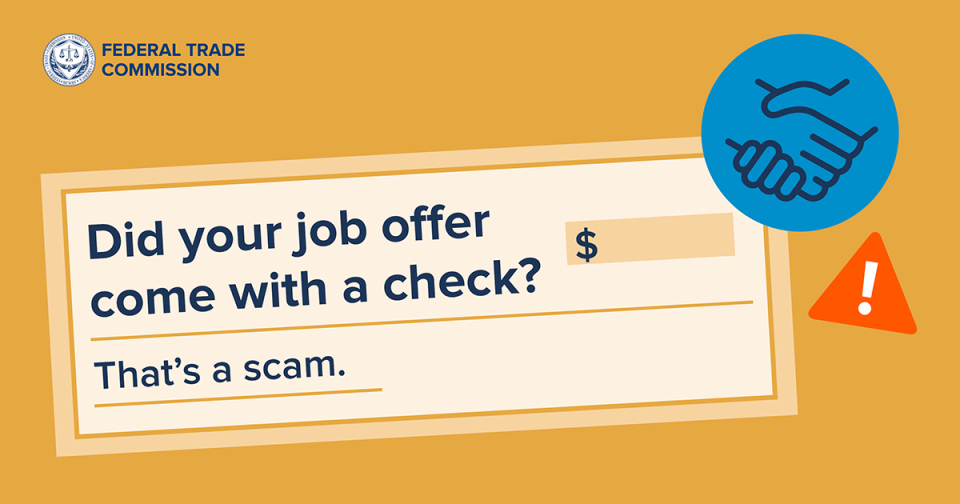Getting hired might feel like the ultimate high. But finding out it was just a scammer trying to steal your money will bring you — and your bank balance — right back down. Many college students look for virtual jobs they can do while going to school, but if a new employer mails your first paycheck before you even start working, that’s your cue to stop — it’s a scam.
Scammers post ads for fake jobs for personal assistants on common job sites and social media. Or they might send emails that look like they’re from someone in your community, like a professor or an office at your college. If you apply, they’ll mail you a check to deposit at your bank. Then, they’ll ask you to send some of the money to another account. They tell you a convincing story, but the check is fake and the whole thing is a scam. The check will eventually bounce and the bank will want you to repay the money you withdrew. Meanwhile, the scammer will have walked away with the money you sent them.
Add these steps to your job search checklist to help you spot and avoid a job scam:
- Look up the name of the company or the person who’s hiring you, plus the words “scam,” “review,” or “complaint.” See what others are saying about them.
- Reach out directly. If the email looks like it came from a professor or an office at your college, call them directly. Confirm that they’re really looking for someone for this position.
- Get it in writing. Ask the employer to send you details of the job duties, the pay, and the hours. If they refuse, that could be a sign of a problem.
- Talk to someone you trust. Show them the offer and see what they think. This also gives you vital time to think about the offer.
Your boss should be paying you, not the other way around. If they tell you to deposit a check and use some of the money for any reason, that’s a scam. Walk away. Then report it to the FTC at ReportFraud.ftc.gov. Learn more at ftc.gov/jobscams.


I just went through this with a company that called themselves CDON. Emails were DCON support. Keep an eye out for them. I reported to FTC, the police and https://www.ic3.gov/. I also wrote and article about it on my website. I recognized it right away and gathered all information I could before I reported. You should report too.
In reply to I just went through this… by rick reeves
I followed thru with a similar scam. They offered me money to put an ad sign on my car. When they sent me the check, I called the company name on the check. They said the checks were stolen from them and the FBI was investigating. When the guy called me back with instructions to mail him back some on the money. I told him no. He threatened to call the cops on me. I told him that was OK because I had notified the FBI. Never heard from him again.
In reply to I followed thru with a… by Jeanne Mitchell
Sounds as though you handled it smartly. Good girl, putting some fear is that thief.